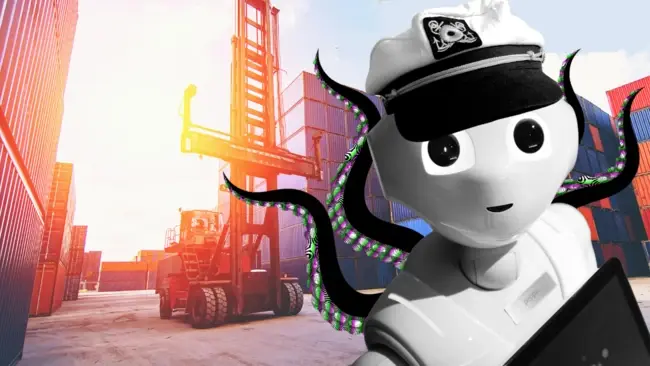A new report by Wärtsilä has revealed that fear and myth-making surrounding the uncharted waters of digitalisation are halting technological progress within the maritime industry.
The report, which surveyed 221 maritime professionals across Europe, the Middle East, the US and Asia-Pacific, found that almost half of maritime professionals had a volatile attitude towards technology, while two-thirds saw the ability to digitalise existing infrastructure and retrofit vessels as a major challenge.
36 per cent of respondents also admitted to being resistant to technological progress despite the majority (78 per cent ) understanding that change and technological innovation could benefit shipping processes.
The report notes that many fears surrounding maritime digitalisation stem from myths about technology comparable to ancient stories about mythological sea monsters such as the Kraken.
“Our report draws striking parallels between the fears and misunderstandings that gave rise to vivid stories of famous mythological sea monsters that live on in folklore today,” Michael Christiansen, Vice president of Wärtsilä said.
“The industry agrees that digitalisation is essential to the future of shipping. But little tangible progress has been made to date because of wildly different and vague interpretations of what digitisation actually means,” he explained.

An industry divided
The report notes that fragmentation within maritime teams is one of the major obstacles preventing technology from taking hold of the industry.
80 per cent of ports around the world still heavily depended on manual legacy solutions such as whiteboards or spreadsheets to manage critical marine services like towage, pilotage and launch boats, according to research by port management software provider InnovezOne.
Experts have highlighted that this overreliance on manual labour is not only due to disagreement within the industry, but also maritime professionals' distrust of the tech sector.
“The industry feels that IT has not delivered particularly with the seamless and ubiquitous UI/UXs they become so accustomed to on their mobile applications. “On the other hand, Tech people feel that shipping people are unwilling to spend time & commit their effort to discuss their problems and requirements,” Chye Poh Chua, founder of ShipsFocus, explains.
“Both sides have different perspectives, expectations and priorities – more so in the case of a CVC or Corporate Innovation structure. They still need an expert third party to bridge the gap,” he adds.
But Wärtsilä notes that maritime professionals also feel unsupported by their own organisations and authorities which adds to the confusion, frustration and fear that plagues the industry and prevents progression from being made.
“Without collaboration, products and tools are brought in but not implemented in a sustainable and ongoing way,” Wärtsilä’s report writes.
“This aggravates the issue of professionals being overwhelmed by technology and data – becoming once more disempowered rather than empowered in the face of digitalisation,” the report added,” it adds.
Collaboration is key to Maritime digitalisation
One of the major silver linings of the report was that the majority of maritime professionals believed technology could transform shipping for the better, with 70 per cent of respondents saying that they had a very clear understanding of why digitalisation is needed and its benefits.”
But for this to happen, 88 per cent of respondents agreed that collaboration within the industry would be key to its digitalisation, whilst two thirds recognised that people will be more crucial to digital transformation than the technology itself.
To learn how businesses can collaborate more effectively, visit our Unified Communications Page.
“Like the sea, digital transformation is a great unifier. We are all in the same boat. Real progress will only happen when we collectively abandon the idea of digital transformation as all or nothing,” Christiansen explained.
“We can and must share and learn from each other’s experiences because digitisation won’t be achieved by any one player alone. We need to work together to build an ecosystem where digital technologies on board a ship talk to those in offices on shore,” he added.
The report concludes that without complete buy-in from a large proportion of maritime industry professionals from the outset, successful digital transformation will not be possible.
Unless there is a unified consensus on digitalisation within the industry, myth-making by maritime professionals who feel stranded by digitisation rather than supported by it.







Comments ( 0 )